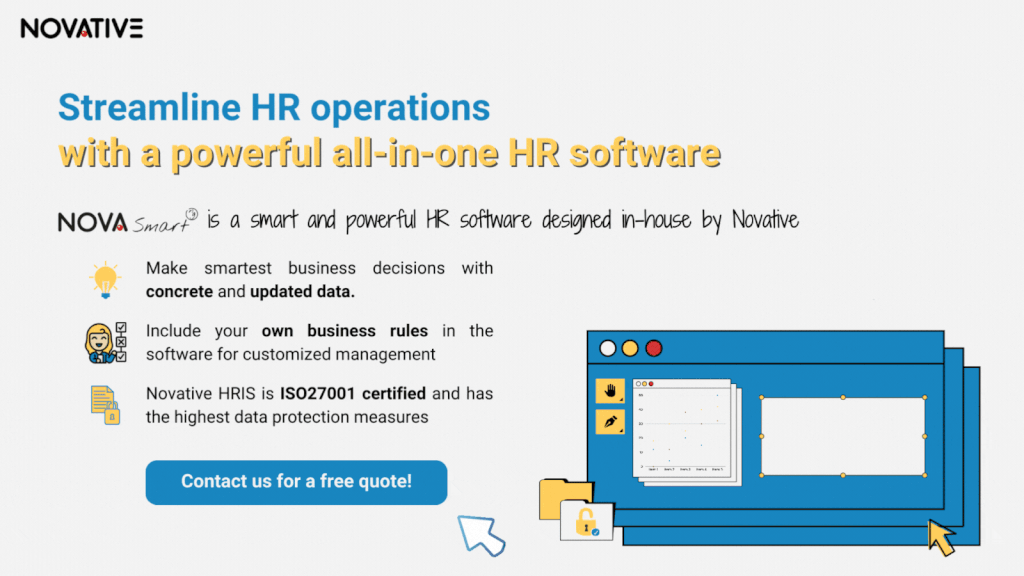Introduction :Building an Emotionally Intelligent Workplace
Many believe that emotions and intelligence are opposites, but researchers in emotion psychology have recognized emotions as it’s Owen unique form of intelligence known as emotional intelligence (EQ). In the workplace these findings highlight that understanding and managing emotions is vital for a well-rounded and effective environment.
Forbes magazine emphasized this by mentioning that 90% of top achievers show strong emotional intelligence. This highlights the importance of fostering an emotionally intelligent workplace for an employee’s overall success.
In the following article, we will discover what emotional intelligence (EQ) is and how having an emotionally intelligent workplace contributes to the establishment and maintenance of a collaborative and high-performing work environment.
What’s emotional intelligence (EQ)?
Emotional intelligence is the ability to understand, use, and manage your own emotions in healthy ways, recognize and understand the emotions of others, and use this knowledge to navigate relationships and interactions effectively. It includes 5 key skills:
Self-awareness
The ability to know what you are feeling and why—and how it affects what you are trying to do. You sense how others see you, so you align your self-image with a larger reality.
Self-control
The capacity to regulate disruptive emotions and impulses. Which ensures the effectiveness of your actions in the face of stressful or hostile conditions.
Empathy
The comprehension abilities of others’ emotions require the capacity to step into their shoes and perceive situations from their point of view.
Motivation
The drive to improve and achieve with a commitment to your goals, or readiness to act on opportunities, and optimism and resilience.
Social skills
The skills needed to handle and influence other people’s emotions effectively.
Advantages of having an emotionally intelligent workplace
By understanding and honing EQ skills, individuals and teams can navigate challenges and enhance performance. The recognition of EQ’s pivotal role is not merely coincidental. It‘s ranking in the top 10 most in-demand work skills by the World Economic Forum, reflects its integral part in helping to create:
Effective leadership & decision-making
Leadership decisions go beyond rational factors; it includes understanding the emotional implications of choices. Developing leadership EQ allows leaders to become more effective, provide support, maintain composure, and positively influence the emotions of those around them.
Supportive well-communicated work environment
Practicing EQ helps the team interact with each other professionally, modulating one’s tone of conversation based on the emotional state of the counterparty and communicating clearly to prevent conflicts. This fosters a supportive workplace and a positive culture.
Administrative efficiency
Emotional intelligence (EQ) enables you to understand your employees better, allowing you to tailor processes to improve efficiency in administrative tasks, handle challenges, and address inquiries. This, in turn, significantly enhances the overall efficiency of the organization.
Enhanced performance & reduced turnover
Investing in EQ skills can unlock the full potential of every employee. Employees with strong emotional intelligence are better equipped to handle workplace stress, maintain productivity under pressure, and adapt to changes, resulting in higher levels of engagement, loyalty, and better long-term performance.
Holistic performance measurement
Emotional intelligence (EQ) is a valuable addition to performance measurement, considering not only technical skills and task accomplishments but also the interpersonal and emotional aspects of an employee’s performance. Providing managers with a broader perspective not only gauges current performance but also predicts future success.
How to create an emotionally intelligent workplace?
Building an emotionally intelligent workplace involves more than constant niceness; it’s about recognizing how emotions’ impact on thoughts, speech, and actions. Leadership support is pivotal for this cultural shift. Establishing specific, measurable goals for emotional intelligence development is key, as is providing a roadmap and ensuring organizational accountability.
work on emotional awareness
Emotional awareness, a key component of emotional intelligence (EQ), plays a crucial role in enhancing team dynamics by enabling teams to navigate the intricate social and emotional processes at play. This strengthens team cohesion and paves the way for success.
Teach emotional intelligence skills
Assess the team’s current emotional intelligence, identify challenges, and implement exercises that address it for ongoing emotion regulation. Involve every team member in the process and integrate this development exercise into everyday practices and interactions with clear metrics to measure progress in team members’ emotional intelligence development.
Implement conflict resolution strategies
Effective conflict resolution plays a pivotal role in building emotional intelligence. It empowers individuals to navigate disagreements constructively. This leads to positive resolutions that not only strengthen relationships but also create a positive emotionally inelegant environment.
Encourage your team to reflect and debrief.
Reflecting on both positive and negative experiences fosters self-awareness and emotional vocabulary. Sharing reflections through open dialogue builds trust and a supportive environment. This collective effort strengthens your team’s EQ.
Conclusion | 4 Strategic Advantages of Global Hiring
In conclusion, the landscape of professional success has shifted, with technical skills alone proving insufficient. Recognizing emotional intelligence (EQ) as the new differentiator is imperative.
As we move forward, encouraging continuous EQ growth becomes integral, ensuring both individual and organizational triumphs in the dynamic world of work.








